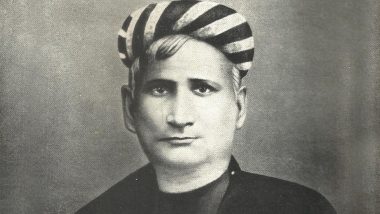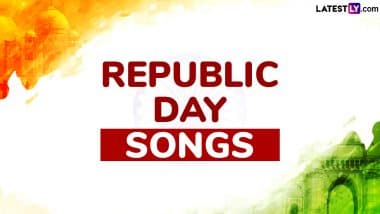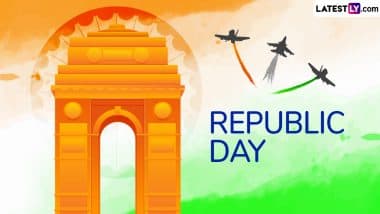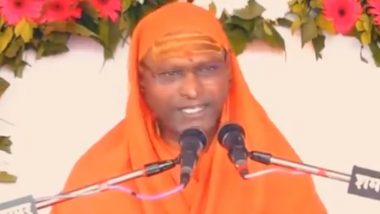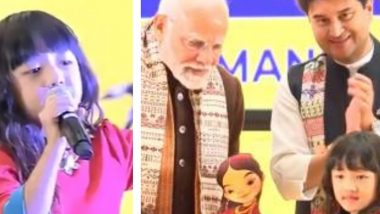It is the death anniversary of one of the greatest minds in Indian history, the writer of India’s National Song Vande Mataram, Bankim Chandra Chatterjee (Chattopadhyay). The dignified Bengali novelist and one of the leading minds behind the creation of Bengali prose, literary journalism and social satire, Chatterjee was a genius in his own right. On April 8, 1894, the writer breathed his last. An ode to the motherland, Chatterjee wrote Vande Mataram in 1876, and the verses first appeared in his 1882 novel Anandamath. It was first sung by Rabindranath Tagore in 1896. In October 1937, the first two verses of Vande Mataram was adopted as the National Song of India by the Congress Working Committee. There are a lot of interesting facts; one may not know about the country’s national song. On the death anniversary of Chatterjee, in this article, we bring you Vande Mataram song lyrics and facts associated with the national song. Mangal Pandey 163rd Death Anniversary: 11 Interesting Facts About the Brave Freedom Fighter You Didn't Know Of.
Vande Mataram Song Lyrics
The title Vande Mataram, also spelt as Bande Mataram, means, “I praise thee, Mother.” The “mother goddess” in the later verses of the song has been interpreted as the motherland of the people—Bharat Mata. The poem played an influential role during the Indian Independence movement, first sung in a political context by Rabindranath Tagore at the 1896 session of the Indian National Congress. Bankim Chandra Chatterjee 127th Death Anniversary: Nation Remembers The Writer Who Wrote National Song of India 'Vande Mataram'.
Watch Video: Vande Mataram Full Song With Lyrics
Vande Mataram: Facts About the National Song
- After Tagore sang the verses at the session of Indian National Congress, Bande Mataram became a popular marching song for political activism. The song lyrics won India’s heart as it was the war cry of freedom.
- Chatterjee wrote Vande Mataram in 1876, and it first appeared in his 1882 novel, Anandamath.
- The British government banned both the song and the novel containing it, but workers and general public defied the ban, many went to colonial prisons, repeatedly for singing it.
- The ban was overturned by the Indians after the country gained independence from the colonial rule.
- On January 24, 1950, the song was adopted as the national song of India officially by the Constituent Assembly.
- The song served as a source of immense strength and inspiration for freedom fighters during India’s struggle to freedom.
- Vande Mataram was originally written in two languages, Sanskrit and Bengali.
Chatterjee’s creation, Vande Mataram, served as a source of immense strength and inspiration for the Indian freedom fighters before the country gained freedom from the British rule. It continues to rule the hearts of citizens inducing a great feeling of patriotism.
(The above story first appeared on LatestLY on Apr 08, 2020 12:51 PM IST. For more news and updates on politics, world, sports, entertainment and lifestyle, log on to our website latestly.com).


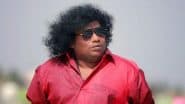










 Quickly
Quickly









